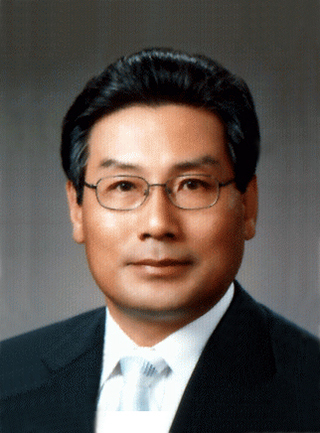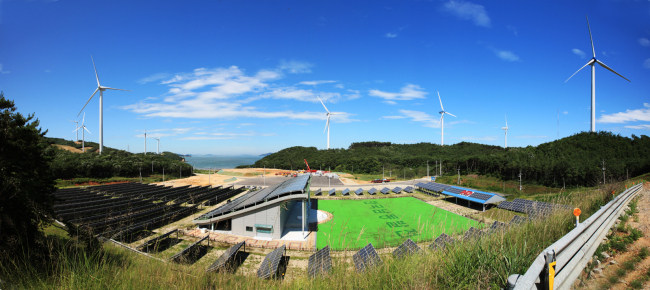
State-run Korea South East Power Company, or KOSEP, one of six power generation subsidiaries of KEPCO, will start this month the construction of its new facility to recycle fly ash from coal into industrial materials, according to the company.
The green technology-based facility, expected to be completed in September next year, will recycle the particles of ash produced during combustion to make industrial fillers, fuel for electric generators, raw materials for steel manufacturing and ready-mix concrete admixtures, among other products.
An electrostatic precipitator will collect the fly ash, from which the new facility will be able to extract valuable industrial materials like cenosphere, unburnt carbon, magnetite, mullite and more, and recycle them.
The green technology-based facility, expected to be completed in September next year, will recycle the particles of ash produced during combustion to make industrial fillers, fuel for electric generators, raw materials for steel manufacturing and ready-mix concrete admixtures, among other products.
An electrostatic precipitator will collect the fly ash, from which the new facility will be able to extract valuable industrial materials like cenosphere, unburnt carbon, magnetite, mullite and more, and recycle them.

The Yeongheung thermal power site of KOSEP, responsible for 20 percent of the electric power consumed in the metropolitan area, burns 11 million tons of imported coal every year and produces 1.1 million tons of fly ash as a result.
Because the company uses inexpensive imported coal and must comply with the metropolitan area’s strict environmental regulations, only 37 percent of the fly ash is being recycled into ready-mix concrete admixtures and the rest is disposed at cinder landfills.
Due to the pending issue of having to discard in eco-friendly fashion and secure an abundance of landfill sites, KOSEP collaborated with SMEs for many years in the research and development of this new technology and eventually delivered successful results at its pilot plant.
Once this facility becomes fully operative, there will be significant improvement in the recycle rate ― up to 95 percent of the fly ash ― thus extending the lifespan of landfills to about 70 years and contributing to stable management of the power plants.
“A synergy effect with cement and various other industries can be anticipated as well,” said the company in a statement.
Furthermore, through joint efforts with SMEs, the company may see revenue increase, create more jobs, reduce the cost incurred from having to build new disposal sites and boost the overall economy by forging a win-win economic environment.
KOSEP currently operates five power plants for a total capacity of 8,375 megawatts ― 10.71 percent of the nation’s electricity ― and has another unit being built in Incheon that will add 870 megawatts, bringing its total capacity to 9,245 megawatts. The new plant will be the first in Korea to be classified in the 800-megawatt segment.
By Kim Joo-hyun (jhk@heraldcorp.com)
Because the company uses inexpensive imported coal and must comply with the metropolitan area’s strict environmental regulations, only 37 percent of the fly ash is being recycled into ready-mix concrete admixtures and the rest is disposed at cinder landfills.
Due to the pending issue of having to discard in eco-friendly fashion and secure an abundance of landfill sites, KOSEP collaborated with SMEs for many years in the research and development of this new technology and eventually delivered successful results at its pilot plant.
Once this facility becomes fully operative, there will be significant improvement in the recycle rate ― up to 95 percent of the fly ash ― thus extending the lifespan of landfills to about 70 years and contributing to stable management of the power plants.
“A synergy effect with cement and various other industries can be anticipated as well,” said the company in a statement.
Furthermore, through joint efforts with SMEs, the company may see revenue increase, create more jobs, reduce the cost incurred from having to build new disposal sites and boost the overall economy by forging a win-win economic environment.
KOSEP currently operates five power plants for a total capacity of 8,375 megawatts ― 10.71 percent of the nation’s electricity ― and has another unit being built in Incheon that will add 870 megawatts, bringing its total capacity to 9,245 megawatts. The new plant will be the first in Korea to be classified in the 800-megawatt segment.
By Kim Joo-hyun (jhk@heraldcorp.com)
-
Articles by Korea Herald









![[Hello India] Hyundai Motor vows to boost 'clean mobility' in India](http://res.heraldm.com/phpwas/restmb_idxmake.php?idx=644&simg=/content/image/2024/04/25/20240425050672_0.jpg&u=)









